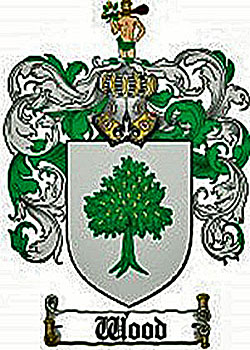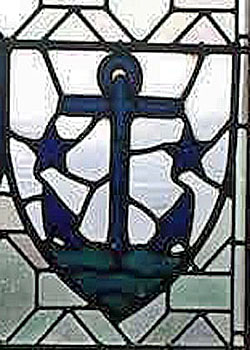
 The origin of the Wood surname for a particular family is not an easy question to answer. We know this surname emerged independently in more than one place. We know this surname has many trees and branches. We know this surname has more the one etymology and a multifaceted story. We know during the 18th and 19th centuries the headcount of Wood families residing in Essex remained stable, but we do not know the movements of Wood families in the 17th century or earlier centuries.
The origin of the Wood surname for a particular family is not an easy question to answer. We know this surname emerged independently in more than one place. We know this surname has many trees and branches. We know this surname has more the one etymology and a multifaceted story. We know during the 18th and 19th centuries the headcount of Wood families residing in Essex remained stable, but we do not know the movements of Wood families in the 17th century or earlier centuries.
The Domesday Books were assembled in 1086 to help William the Conqueror assess the value of the land and tax receipts of his new kingdom. The rise of surnames in England corresponded with the introduction of personal taxation. Formalizing the use of surnames over time grouped people into units that could be itemized, regulated, and tax. Around 1350 the adoption of hereditary surnames became the common practice.
Did families with the surname of Wood relocate to Essex between 1350 and 1550? In the alternative, did families residing in Essex adopt the surname Wood because they lived or worked in the Woods? Did a Wood win fame and a nickname in battle? The answer to each of these questions might be “Yes.” Learning more about the migration patterns of Wood families during the 16th and 17th centuries could increase the chances of discovering the origin of the Wood surname in Essex.

Adam le Wode of Worecestershire (1221) is might derive his name from the Saxon words "wode, wad, or wod," which describes one who is wild or crazy (think of the famous line from Midsummer Night's Dream). Craziness is the twin of bravery, if ascribed to a warrior who overpowers the enemy.

Walter de la Wode of Herefordshire is on the 1242 tax roles of King Henry III, an early example of Wood that means "of the woods." This etymology can refer to either someone who lives near the woods or somone who works near or in the woods, such as a woodcutter or forester.

The earliest bearer of the Wood surname in Scotland was William Wod, a witness at Cawdor in 1295. A famous member of this clan is Admiral Wood of Largo. The clan's crest depicts a "Ship under sail Proper." The clan motto is TUTUS IN UNDIS, which is Latin for "Safe on the Waves."
The Wood Surname predates the 7th century, broadly originating in England, Scotland, and Wales, with etymologies derived from Olde English, Norman French, and Scottish. The General Armory of England includes 104 coats of arms for the Wood surname, which reflects its prevalence and frequency in medieval records (Burke, Bernard, London, Harrison and Sons, 1884). While symbols on these coats of arms are diverse, reflecting the character and attributes of localities, the image of a tree is common. Matching the right branch of the Wood surname to its correct coat of arms can be tricky, and not every branch of the Wood surname has its own coat of arms. The Wood surname has at least nineteen mottoes associated with it, including themes such as Defend, Perseverance, and Valor. Perhaps the earliest evidence of the Wood surname is Essex is John Atewood (1274), meaning "John at the woods."
The Wood surname is derived from a nickname, a topographical meaning, or a occupational meaning. As a nickname, Wood is a play on words, sounding like the Saxon words "wod or wode," which means wild or crazy. The proof of this usage is the crests of Wood families such as the Wood clan of Bonnytoun, whose motto is defend and whose crest displays a savage warrior with a club. In the case of its topographical meaning, "wode" is an Middle English word that comes from the Old English "wudu," which means a forest or woods (Dictionary of American Family Names 2nd Edition. Hanks, Patrick et al, Oxford Univerity Press, 2022). As an occupational or metonymic name, Wood refers to a person "working near the woods" (Oxford Unabridged Distionary). Some coats of arms and crests combine more than one of these three meanings.
Stories about the origins of the surname Wood are diverse and creative, often retold online without attribution. A few stories, however, rise to the top. One story recounts how the Wood family of Dumfriesshire traces its line back to a Norman Knight who, after losing his knight’s fief in England, relocated to Scotland about 1150 AD. Another argument links the surname Wood to De Silva of Suffolk, who appears in Domesday in 1086 AD (Lower, Mark Antony, Patronymica Britannica, London, John Russell Smith, 1860). Silva is the Latin word for forest.
The protagonist of yet another explanation is Emald de Bosco (1120-1173), a Norman Knight and companion of William the Conqueror, whose surname might have been latinized into English as Wood. The coat of arms of the De Bosco family, as one would expect, features a tree (An Etymological Dictionary of Family and Christian Names with an Essay on their Derivation and Import, Arthur, William, M.A.; New York, NY: Sheldon, Blake, Bleeker and Co., 1857). In 1153, Emald de Bosco received the mandate to become “justice of the forest on this side of Trent,” which meant de Bosco was perfectly named to be the manager of a forest (Bond, Rodney, Many Mini Biographies, 12 August 2020, website teachergenealogist007.com). Bosco in Norman French is Vosco, the antecedent of the modern French surnames Bois or Dubois.
We do not know what you know. Please share with us your knowledge, and help us correct any error you find in our research.